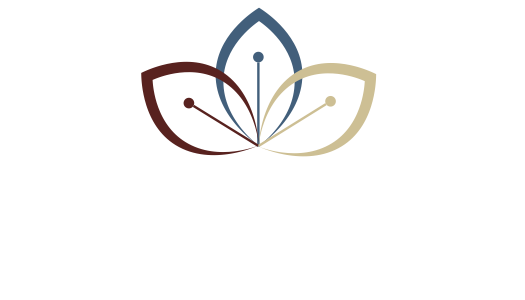 In This Issue – October 2013
In This Issue – October 2013
– Acupuncture and Oriental Medicine for Musculoskeletal Issues
– Essential Nutrients for Musculoskeletal Health
Acupuncture and Oriental Medicine for Musculoskeletal Issues
The musculoskeletal system consists of connective tissues including joints, ligaments, and tendons. Problems with the musculoskeletal system can result in inflammation and pain and, ultimately, reduce the body’s overall health. Increasingly, people are looking for more natural approaches to help relieve painful musculoskeletal conditions instead of relying on medications.
Acupuncture is a good therapy choice because it has no side effects and can be helpful for all types of pain, regardless of what is causing the pain or where the pain is located.
Some studies have shown the pain relief provided by acupuncture can last for months. Magnetic resonance imaging (MRI) of the brain before and after acupuncture treatment for pain shows dramatic decreases in brain activity, up to 70 percent. This decrease in brain activity in certain areas of the brain is thought to be the reason for the reduction of pain caused by the acupuncture treatments.
Some musculoskeletal issues that have been successfully treated with acupuncture and Oriental medicine include:
- Low Back Pain
Low back pain is an extremely common concern, affecting anywhere from 75 to 90 percent of people at some point in their lives. Low back pain is second only to the common cold as a cause of lost days at work and is one of the most common reasons to seek medical care, including acupuncture. In a German study published in the Archives of Internal Medicine, 1,162 adults with chronic, lower back pain were divided into groups treated with either the standard pharmaceutical and exercise therapy commonly used in conventional medicine or acupuncture. The researchers reported that acupuncture provided relief and lasting benefit to nearly twice as many lower back pain patients as drugs and exercise. Forty-eight percent of the acupuncture patients reported at least a one-third decrease in pain along with improvement in their ability to function, versus twenty-seven percent of the patients treated with conventional methods reporting such benefits.
In another recent study published in the Annals of Internal Medicine, researchers from the University of Maryland School of Medicine analyzed 33 studies covering more than 2,100 patients from around the world on acupuncture for low back pain. They found acupuncture provided definite pain relief sustained for three weeks after the end of the acupuncture sessions.
- Arthritis
A complex disorder, arthritis comprises more than 100 distinct conditions and can affect people at any stage of life. Two of the most common forms are osteoarthritis and rheumatoid arthritis. While these two forms of arthritis have very different causes, risk factors, and effects on the body, they often share a common symptom—persistent joint pain. Acupuncture and Oriental medicine have been found to be extremely effective at treating the pain and inflammation associated with all types of arthritis. The acupuncture points and herbs that are used depend on whether the blockage of Qi (arthritis) is caused by wind, cold, damp or damp-heat.
- Chronic Fatigue Syndrome
Chronic fatigue syndrome (CFS) is far more than just being tired. It is a frustrating, complicated disorder characterized by extreme fatigue that may worsen with physical or mental activity and does not improve with rest. Those affected with CFS can get so run down that it interferes with the ability to function in day to day activities, with some becoming severely disabled and even bedridden. In addition to extreme fatigue, chronic fatigue syndrome encompasses a wide range of other symptoms, including but not limited to, headaches, flu-like symptoms and chronic pain. If you suffer from CFS, Oriental medicine can help relieve many of your symptoms. Exceptional for relieving aches and pains, acupuncture and Oriental medicine treatments can help you avoid getting sick as often, and recover more quickly, as well as improve your vitality and stamina. Repetitive Stress Injuries Repetitive stress injuries (RSI) are responsible for the highest number of days lost among all work-related injuries. Symptoms of repetitive stress injuries include tightness, stiffness, pain, tingling, numbness, coldness and loss of strength. Acupuncture is extremely effective for treating repetitive stress injuries including carpal tunnel syndrome (CTS); eliminating the need for surgery or the use of anti-inflammatory drugs or corticosteroids. In fact, one of the most common reasons that people get acupuncture is for repetitive stress injuries. Recent studies even suggest that acupuncture may be more effective than corticosteroids when it comes to treating CTS.
- Temporomandibular Joint Disorder (TMJ)
Temporomandibular joint and muscle disorders are problems or symptoms of the chewing muscles and joints that connect your lower jaw to your skull. Patients suffering from temporomandibular joint disorders can find relief from acupuncture. Research conducted at the Ribeirão Preto Dental School, São Paulo University in Brazil, found that after three months of acupuncture, patients with TMJ experienced significantly less pain, increased strength of their bite and decreased EMG activity of the masticatory muscles.
If you or someone you know is struggling with a musculoskeletal disorder or wants to improve their musculoskeletal health, call today to schedule an appointment or get more information on how acupuncture and Oriental medicine can help you!
Essential Nutrients for Musculoskeletal Health
A healthy musculoskeletal system is important for everyone as the system is continuously tested by stress and exercise. Incorporate these nutrients into your diet to improve your musculoskeletal health.
- Vitamin C: Essential for the formation of collagen, Vitamin C is a major component of all connective tissues and essential to the musculoskeletal system. Correct levels of vitamin C help to combat stress, build the immune system, and reduce swelling. Vitamin C is found in a variety of fresh fruits and vegetables including citrus fruits, green vegetables, tomatoes and berries.
- Vitamin D: Vitamin D aids in the absorption of calcium, helping to form and maintain a strong musculoskeletal system. Found in fish, eggs, fortified milk, and cod liver oil, vitamin D can also be synthesized by the skin when exposed to ultraviolet B (UVB) rays from the sun. As little as 10 minutes is thought to be enough to prevent deficiencies.
- Essential Fatty Acids: The essential fatty acids Omega-3, Omega-6 and Omega-9 directly affect cellular, cognitive and kidney function. Their anti-inflammatory effect on the body helps keep joints healthy, reduce pain and swelling. They have also been found to be beneficial in dealing with depression, stress, arthritis and menopause. Foods rich in Omega-3 fatty acids include: salmon, sardines, tuna and other cold water fish; nuts and seeds, notably flaxseeds, hemp seeds and walnuts; and winter squash.
- Water: The average adult is comprised of 50 to 65 percent water. Not getting enough water can affect the ability of the body’s cells to function properly. Water increases the circulation of oxygen and nutrients throughout the body and helps eliminate waste. Keeping your body well-hydrated can help your musculoskeletal system function better.



